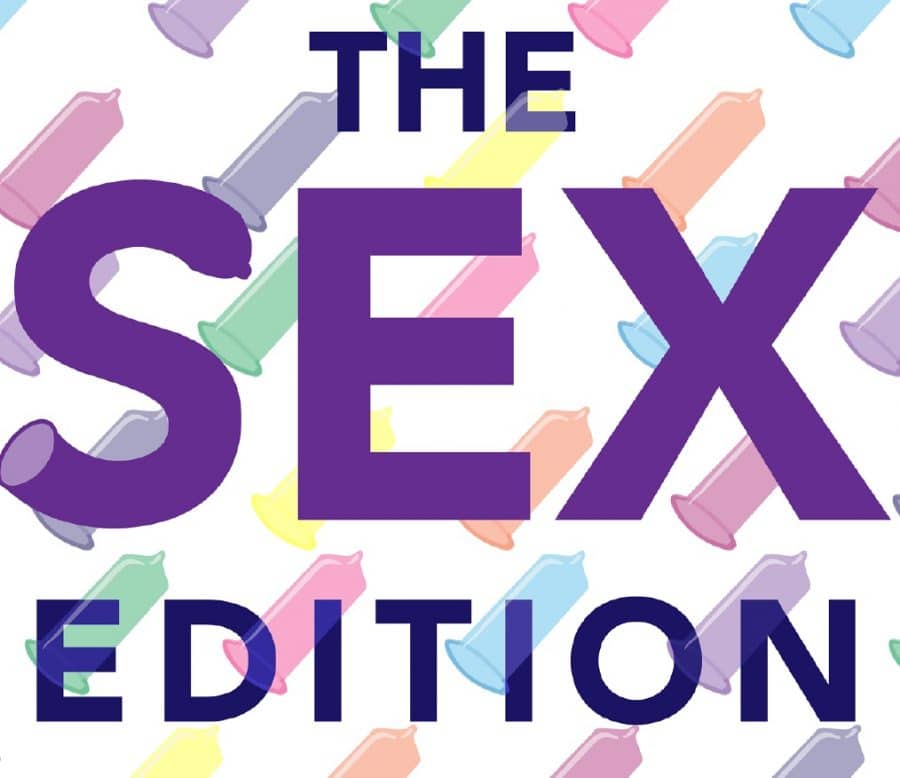The University of Alabama is accustomed to excellence; whether it be in the classroom or on the football field, people all over the country know Alabama is on top – except if you are talking about sexual health.
According to the most recent Trojan Sexual Health Report Card, the University ranked 74th out of 140 schools in 2016, finishing behind other SEC schools such as Georgia, Florida, Missouri, Vanderbilt, Kentucky, South Carolina and Louisiana State. Alabama’s rank is a drop from its previous position at 58th in 2015. However, this decrease in rank does not mean Alabama’s sexual health program got worse; it means other schools improved in ways Alabama did not.
“I think we are doing a good job on the programs that we are offering right now. We are meeting the students’ needs,” Charlotte Petonic, Assistant Director of Health Promotion and Wellness, said. “I would say that there are probably more areas that we can expand upon, but one of the things that comes up when we do sexual health education is that there is stigma or embarrassment about talking about it.”
The report from Trojan ranks universities from major conferences based on the sexual health resources and information provided to students, taking into account factors such as access to contraceptives, STD testing and outreach programs.
The University of Georgia moved up to number one in the report as a result of their improvements to condom accessibility and encouragement of dialogue about sexual health on campus. The University instituted programs like the Condom Express, which makes condoms more convenient to access, and the Project Condom Exhibition, which brought sexual health to the forefront of discussion on their campus.
Other SEC schools offer similar services that placed them higher than Alabama in the report. Despite the rankings, students at the University should not be concerned. The University offers a variety of services for students’ sexual health needs.
Through the Student Health Center and peer outreach groups with Project Health, students can have access to condoms and other contraceptive options, receive STD testing and have access to a wealth of information about any questions they may have about sexual health.
One of the new initiatives offered through Project Health are safe sex kits, which are available at residence halls with 24-hour information desks.
“They come in white envelopes so it looks you’re getting a piece of mail. It has three condoms in it, a packet of lubricant and a safer sex brochure with specific campus resources and how to put on a condom properly, and that has been a great resource,” Petonic said.
A major focus point for the University is outreach on campus, which aims to provide students with the resources they need while simultaneously shedding the stigma of talking about sexual health publicly.
Project Health is the main source for outreach, with peer education programs like the Health Hut and Gamma. The students with these groups, as well as ambassadors and advocates from Project Health, set up tables and give presentations across campus, focusing on topics like sexual health but also other health topics.
According to Petonic, these students regularly provide condoms and brochures to students and direct them to other services they may need. A major part of their job is educating students through presentations. For example, students who work with Gamma will go to different fraternity and sorority chapter meetings to talk with students about healthy sexual activity and the resources available on campus to facilitate such activity.
“We constantly try to do education in many different formats so that students hear it over and over again so that maybe it will click and they’ll be like, ‘Oh that’s what the Health Hut was talking about,’” Petonic said. “It’s constantly having to reiterate the important things that are going on so students will pick them up.”
One of the challenges Project Health faces with spreading sexual health information is the uncomfortable nature of discussing sex with strangers. Many students might feel strange talking about the topic with someone they do not know. Some would prefer to read about it on their own.
“It’s one of those things that I think people feel awkward about. So I think having more published information rather than people who are face-to-face would be better for people and would make people more likely to feel safer and more comfortable knowing information about condoms and using them and stuff like that,” Michael Wartski, a junior studying marketing, said.
Wartski acknowledged a need for an improvement in open discussion about sex but also said that he thinks until significant improvement is achieved, students need more information they can access on their own.
There are other areas of sexual health the University might improve upon to rise up the ranks of Trojan’s report. One specific area is the accessibility of STD/STI testing. Currently, students can receive confidential testing at the Student Health Center. However, this testing is not free, which can be problematic for college students on a budget.
“While I feel that arming students with the knowledge they need to manage their own sexual health is effective, I feel that the University could do better in the area of sexually transmitted infections,” Taylor Scott, a student who works with Gamma, said. “Sexually transmitted infections are a major issue among college-aged students, and cost is a barrier for many students to accessing STI testing.”
Improving the overall sexual health on campus is a long and difficult process – one that will require the students and administration to come together and formulate plans that serve the needs of the community. The University has been making major strides to help students, but as evidenced by the superior ranking of other SEC schools, there is always room for improvement.









